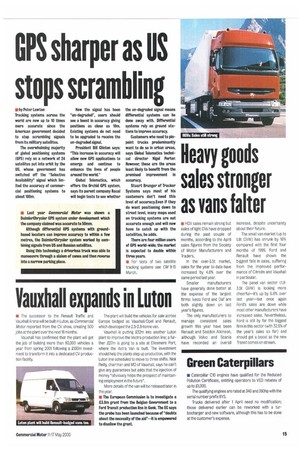GPS sharper as US stops scrambling
Page 17

If you've noticed an error in this article please click here to report it so we can fix it.
It by Peter Lawton
Tracking systems across the world are now up to 10 times more accurate since the American government decided to stop scrambling signals from its military satellites.
The overwhelming majority of global positioning systems (GPS) rely on a network of 24 satellites put into orbit by the US, whose government has switched off the "Selective Availability' signal which limited the accuracy of commercial positioning systems to about 100m. Now the signal has been "un-degraded", users should see a boost in accuracy giving positions as close as 10m. Existing systems do not need to be upgraded to receive the un-degraded signal.
President Bill Clinton says: "This increase in accuracy will allow new GPS applications to emerge and continue to enhance the lives of people around the world."
Global Telematics, which offers the Orchid GPS system, says its parent company Racal will begin tests to see whether the un-degraded signal means differential systems can be done away with. Differential systems rely on ground stations to improve accuracy.
Customers who need to pinpoint trucks predominantly want to do so in urban areas, says Global Telematics technical director Nigel Porter. However, these are the areas least likely to benefit from the promised improvement in accuracy.
Stuart Brunger of Tracker Systems says most of his customers don't need this level of accuracylven if they do want positioning down to street level, many maps used on tracking systems are not accurate enough and will now have to catch up with the satellites, he adds.
There are four million users of GPS world-wide; the market is expected to double within three years.
• For tests of two satellite tracking systems see CM 9-15 March.




































































































